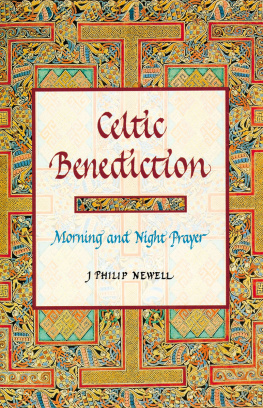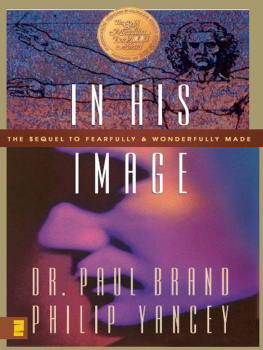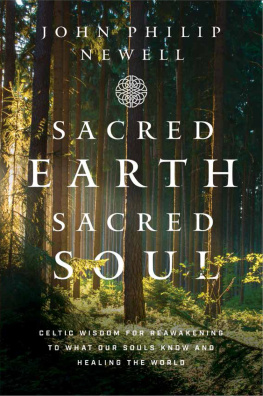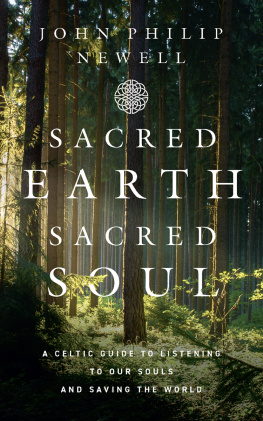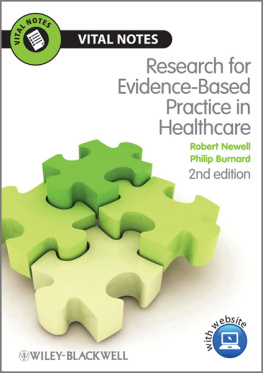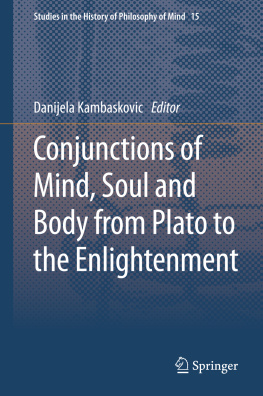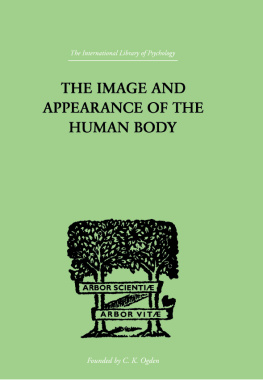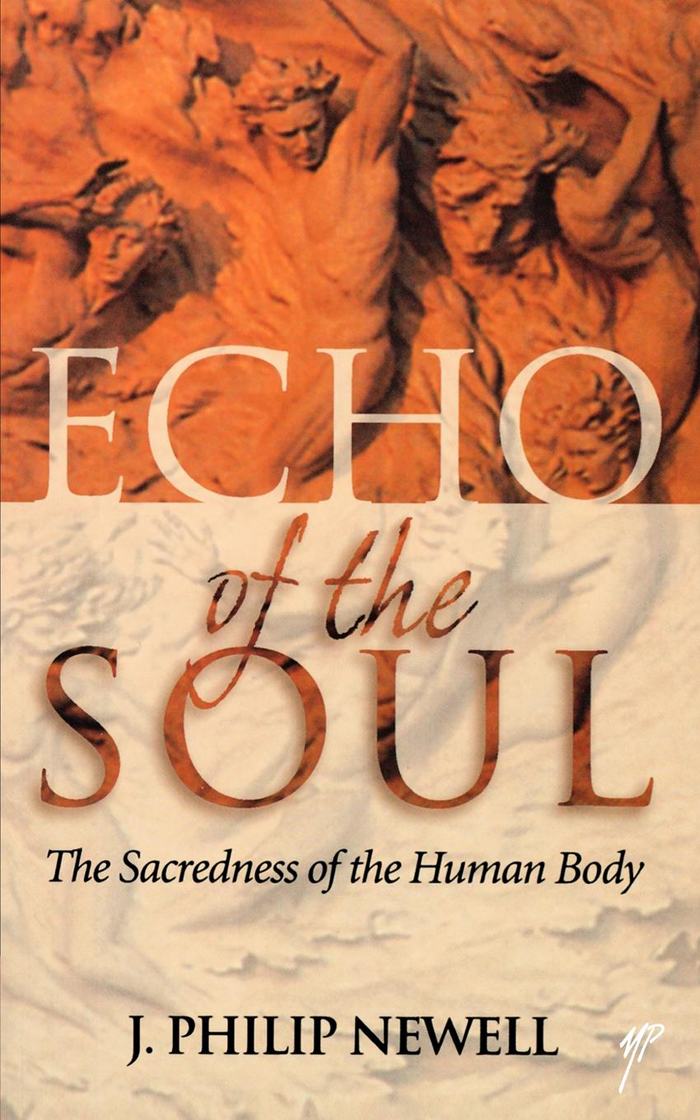ECHO
of the
SOUL

ECHO
of the
SOUL
The Sacredness of the Human Body
J. PHILIP NEWELL


Copyright 2000 J. Philip Newell
Morehouse Publishing
4775 Linglestown Road
Harrisburg, PA 17112
Morehouse Publishing is an imprint of Church Publsihing Incorporated.
First published in 2000 by Canterbury Press Norwich (a publishing imprint of Hymns Ancient & Modern Limited, a registed charity) St. Marys Works, St. Marys Plain, Norwich, Norfolk NR3 3BH, UK
All rights reserved. No part of this book may be reproduced or transmitted in any form or by any means, electronic or mechanical, including photocopying, recording, or by any information storage and retrieval system, without written permission from the publisher.
The Author asserts the moral right to be identifid as the Author of this work.
Cover design by Laurie Westhafer.
Cover photograph taken as Washington National Cathedral, Washington, D.C. by William K. Geiger.
The Library of Congress has cataloged the hardcover edition as follows:
Newell, J. Philip
Echo of the soul: the sacredness of the human body / J. Philip Newell.
p.m.
Includes bibliographical references.
ISBN 10 0-8192-1874-X
ISBN 13 978-0-8192-1874-2
1. Body, Human-Religious aspects-Christianity. 2. Spiritual life-Christianity. I. Title.
BT741.3.N29 2000
233.5dc21 2001030150
Paperback edition
ISBN 10 0-8192-1908-8
ISBN 13 978-0-8192-1908-4
Printed in the United States of America
08 09 10 11 7 6 5 4 3 2
To my eldest daughter
Rowan Elisabeth Mary
and the goodness of the human body
C ONTENTS
A CKNOWLEDGEMENTS
Bible quotations are from New Revised Standard Version (NRSV) 1989.
The publisher acknowledges with thanks permission to reproduce extracts from the following publications:
Edwin Muir, An Autobiography, by permission of Ethel Elizabeth Ross, Chatto & Windus, 1980.
Edwin Muir, Collected Poems, Faber and Faber, 1984.
P REFACE
Which one of us is not fascinated by the human body, by its mystery and its sensuousness, even if that fascination sometimes takes the form of confusion and doubt? We are rooted in our bodies. At birth, in our play and work together, in our love-making and at our death, it is not simply that we have bodies. It is more that we are bodies. And yet it is perplexing how little positive attention has been given to the body in the religious thought of the Western world. The writing of this book has sharpened my sense of the sacredness of the human body, including my own. I hope it will do the same for you.
The book came to birth during my last year in England before returning to Edinburgh. It was delivered initially as a series of talks at St Thomass Cathedral in Portsmouth during Pentecost 1999. A group of twenty-five women and men met each week for seven weeks to meditate with me on the major themes of the book. I am extremely grateful to them for their willingness to share, and for the depth of perspective that emerged out of the silence of our meditations. It was also very good to be able to treat our bodies to a drink together afterwards at the pub opposite the Cathedral.
As always, the person to whom I am most indebted is Alison. When she married me over twenty years ago we took the traditional vow, With my body I honour you. She has honoured me with her spirit and mind as well. This book has been shaped by all of these honourings.
J. Philip Newell
St Giles Cathedral
August 2000
I NTRODUCTION
The starting point for spirituality in both Jewish and Christian practice is the Genesis 1 description of humanity made in the image and likeness of God. This is the foundation text of our scriptural inheritance. Everything else that is said about us in the Scriptures needs to be read in relation to this truth. The image of God has been woven into the fabric of our being.
A nineteenth-century teacher in the Celtic tradition used the analogy of royal garments woven through with gold. If the golden thread were to be ripped out of the clothing the whole garment would unravel. So it is with the image of God woven into the mystery of our being. If somehow it were to be extracted we would cease to exist. The image of God is not simply a characteristic of our humanity. It is the essence of our being. Sin has not removed it but rather distorted it.
The description of humanity made in the image of God refers to our physicalness as well as our spiritualness. The two are not separated. In Jewish belief the body is the soul in its outward form. Similarly the English poet William Blake describes the body as a portion of the soul.
In the biblical tradition, the Garden of Eden is our place of deepest identity. It represents our genesis in God and the essential goodness of our origins. It is not a place from which we are separated in space and time. Rather, it is a dimension within us from which we have become divorced. The Genesis picture is not of the destruction of Eden, but of Adam and Eve living in a type of exile from the Garden. Our place of profoundest identity has not been destroyed. Rather, we have become fugitives from it.
Genesis celebrates the goodness of creation at its birth and the sacredness of humanity made in the image of God. It also speaks, however, of sin lurking at the door. The picture is of evil at the doorway of life ready to pounce on all that is born. Given what we now know through modern psychological and ecological understanding, and our knowledge of the way in which an unborn child is affected by the mothers state of health and by the wider environment, we might want to say that sin is lurking inside the door of the womb. Life is infected by wrong at its earliest stages of development.
Creation is forever being born. It is continually issuing forth from the mystery of God, from the realm of the unseen into the world of the seen, as the Scriptures say. His inmost self, as he calls it, desires the good, but his false self pursues what is sinful. Redemption is about being reconnected to our true self.
Our Western Christian tradition often has given the impression, and at times explicitly has taught, that this tension is primarily between the soul and the body. The result has been a denigration of the human body and a distrust of our deepest physical energies. The biblical term the flesh, which refers to the sinful tendency in us to disregard our inmost self, incorrectly has been equated with the body. The flesh and the body in the New Testament are different concepts. The consequences of the confusion have been disastrous. We have ended up obscuring the truth that our bodies are made in the image of God. When St Paul teaches that we are to live according to the spirit rather than according to the flesh, he is not suggesting that we should not live according to the body. It is precisely in our bodies that we are to live according to the spirit, rather than allowing ourselves, including our bodies, to be dictated to by what is opposed to our inmost being. The invitation is to be liberated, to be reconciled to what is deepest in us instead of being held in bondage to what is false in us.


